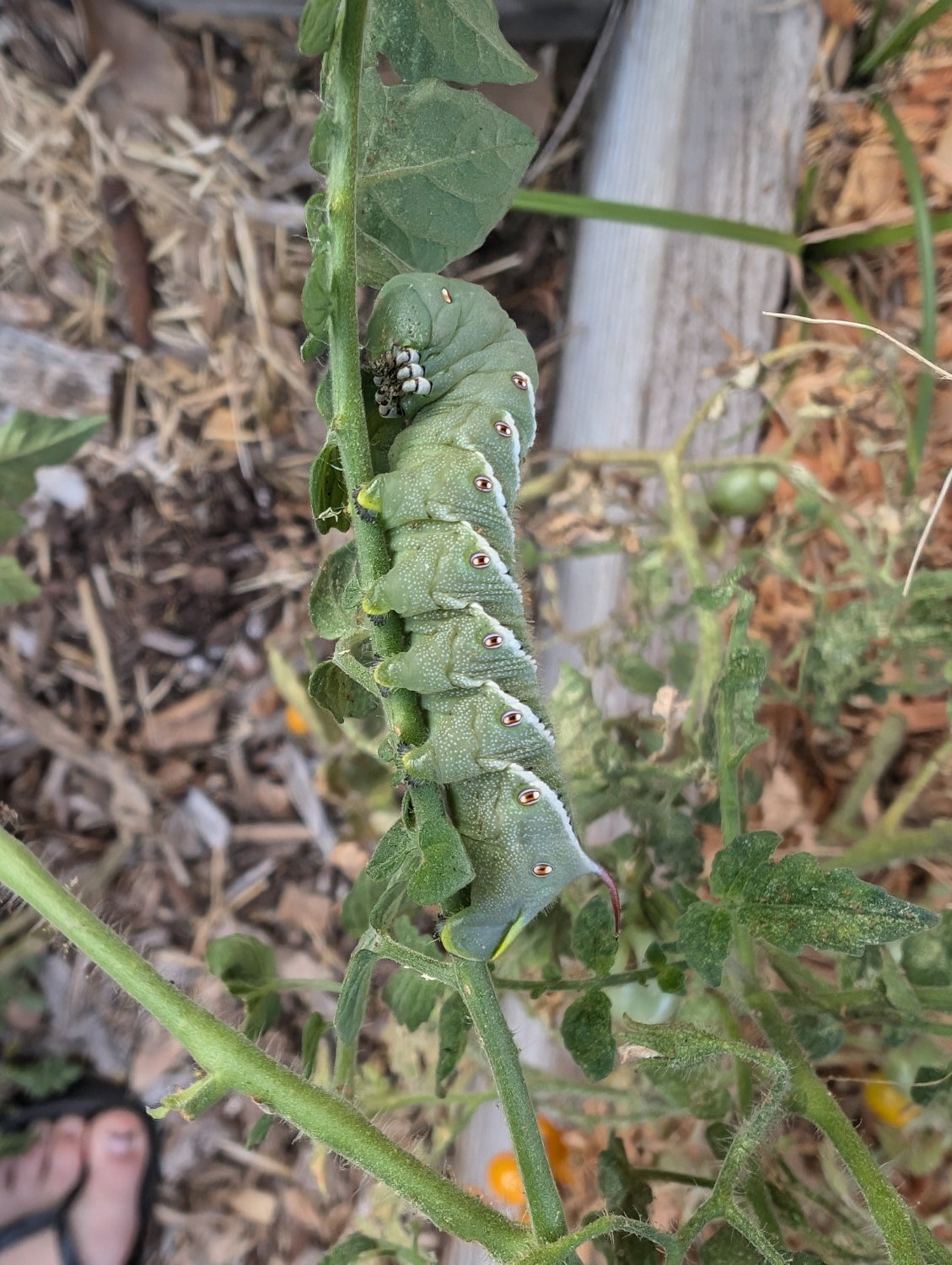this post was submitted on 15 Jul 2024
210 points (97.7% liked)
Gardening
5194 readers
49 users here now
Your Ultimate Gardening Guide.
Rules
- Be respectful and inclusive.
- No harassment, hate speech, or trolling.
- Engage in constructive discussions.
- Share relevant content.
- Follow guidelines and moderators' instructions.
- Use appropriate language and tone.
- Report violations.
- Foster a continuous learning environment.
founded 2 years ago
MODERATORS
you are viewing a single comment's thread
view the rest of the comments
view the rest of the comments

Always double check that they are still active before killing them. I've found several on my tomatos before that have been essentially paralyzed. If you let them be, you'll see some cocoons of these parasitic wasps show up on their back. They will then go seek and destroy any others in your garden.
Don't know the range of those wasps, but I'm in inland southern California, and I don't think I've ever spotted a worm with them. Kinda glad of that tbh, the whole idea gives me the heebie geebies.
I don't know. I suspect that since it is a specific predator that has co-evolved with tomato hornworms, they would completely overlap ranges. Looking at the map of observations people have put on iNaturalist, though, it does not look like they are in your area, so who knows.
They can be very useful and are even used in homes to fight pests.